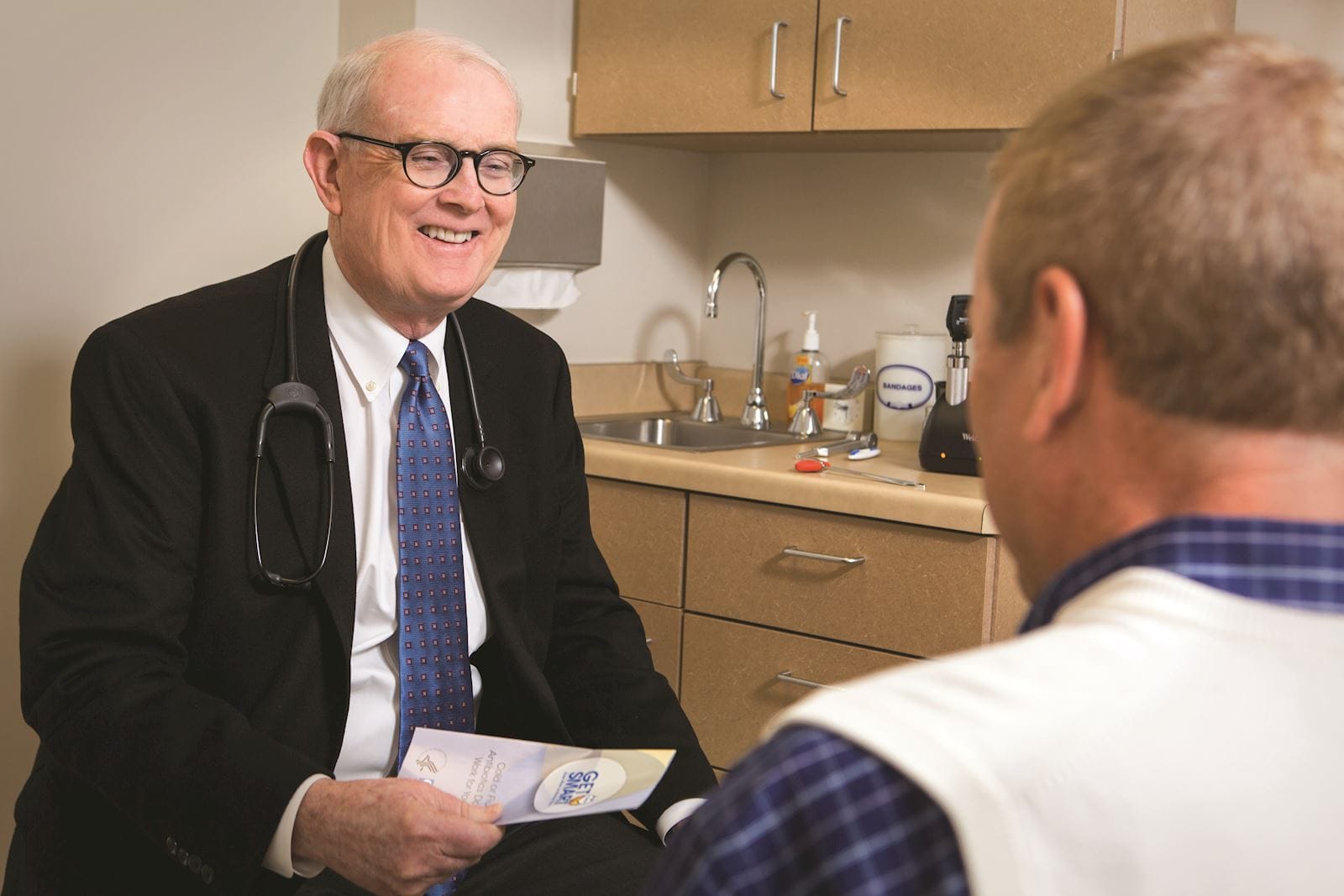Thousands of diseases and disorders have a genetic component. Understanding your family's health history can save your life or a loved one.
Posted
by Featured Provider Danielle Valentine on Tuesday, September 29, 2020
Many people are private about their health, going so far as to keep their conditions from their own family. They may not want to “burden” their loved ones with this information or think their problem is insignificant.
On the contrary, it’s very significant. A health condition that afflicts a close relative can increase your own risk. There are more than 6,000 single gene disorders, where a lone gene mutation is known to cause a disease. And there are hundreds of other diseases that can run in the family.
The more you can learn about the health problems of the rest of your family, the more you will understand your own health risks.

Does Your Doctor Know Your Whole Health History?
An annual exam is a great opportunity to update your provider.
Make an Appointment Online
Family health history is a critical component of disease prevention.
“You look just like your mom!”
“You remind me of your grandfather when he was your age.”
Compliments like these remind you of the physical traits you share with your family. But your shared traits aren’t just skin deep. If your mom has diabetes or your grandpa died of cardiovascular disease, that info can guide your own lifestyle.
“Many health screenings are based on your family's health history,” says Danielle Snyder, DO, an Obstetrics & Gynecology physician with The Iowa Clinic Women’s Center. “If you are unsure about conditions family members have had, you may not qualify for certain screenings.”
Specifically, in Dr. Snyder's OB/GYN practice, “Certain hereditary conditions increase your risk of ovarian, breast and other cancers.” But heredity affects the whole health spectrum and can put you at greater risk of common diseases like:
Collecting the past medical history of your whole family helps your whole family.
You can’t choose your family. And you can’t change your genetic makeup. With the high number of hereditary conditions, it can feel like your health is out of your control.
Collecting your family’s medical history lets you take back control. Once you discover your genetic risk factors, you can get the appropriate screenings and make the lifestyle changes needed to prevent a predisposition from becoming a prognosis.
“We see patients every day who don't know what their grandmother or mother died from, or what health issues their other first-degree relatives had,” Dr. Snyder says. “Unless we know, we can't order the right screenings. I advise those patients to go home, gather the information and then let us know.”
Questions to Ask for a Family Medical History
Since many people don’t openly talk about their health, asking questions is the best way to get answers. If someone is hesitant, explain the importance of sharing this information with the rest of the family to help prevent them from going through the same thing.
It’s most important to talk to your closest relatives — your parents and siblings. But a comprehensive family health history covers three generations. To get that, you’ll need to talk to your other blood relatives — grandparents, aunts, uncles, nephews, nieces, cousins, half-brothers and half-sisters.
Ask them these 10 questions to get a clear picture of your family medical history tree:
- How old are you?
- What ethnicity is your side of the family?
- Do you have any major medical issues, long-term conditions or diseases?
- Do you know of anyone else in the family who has had medical issues?
- How old were you/they when it was diagnosed?
- What treatment did you/they get for the condition?
- Were there any complications of the disease?
- Do you have any allergies?
- Does anyone else in the family share those allergies or have others?
- How old was [family member] when they died and what was the cause?
What to Do With Your Complete Family Health History
You may end up with a wealth of info and have nowhere to put it. Gather everything you wrote down from talking with your family and save it digitally. The U.S. Surgeon General has an online tool, “My Family Health Portrait” that can help you gather and record your family's health information.
From there, take it to your primary care provider. Your family health history supplements your personal medical records. With all this information, your provider can assess your risk for disease, prescribe the screenings and tests to detect diseases early and recommend the lifestyle changes needed to prevent anything you’re at risk for.
If you don't gather the information for yourself, do it for your family. After all, not knowing your medical history may prevent them from getting the screenings or taking the preventative steps they need. So share your own health history and what you find out about everyone else with every one of your close relatives.